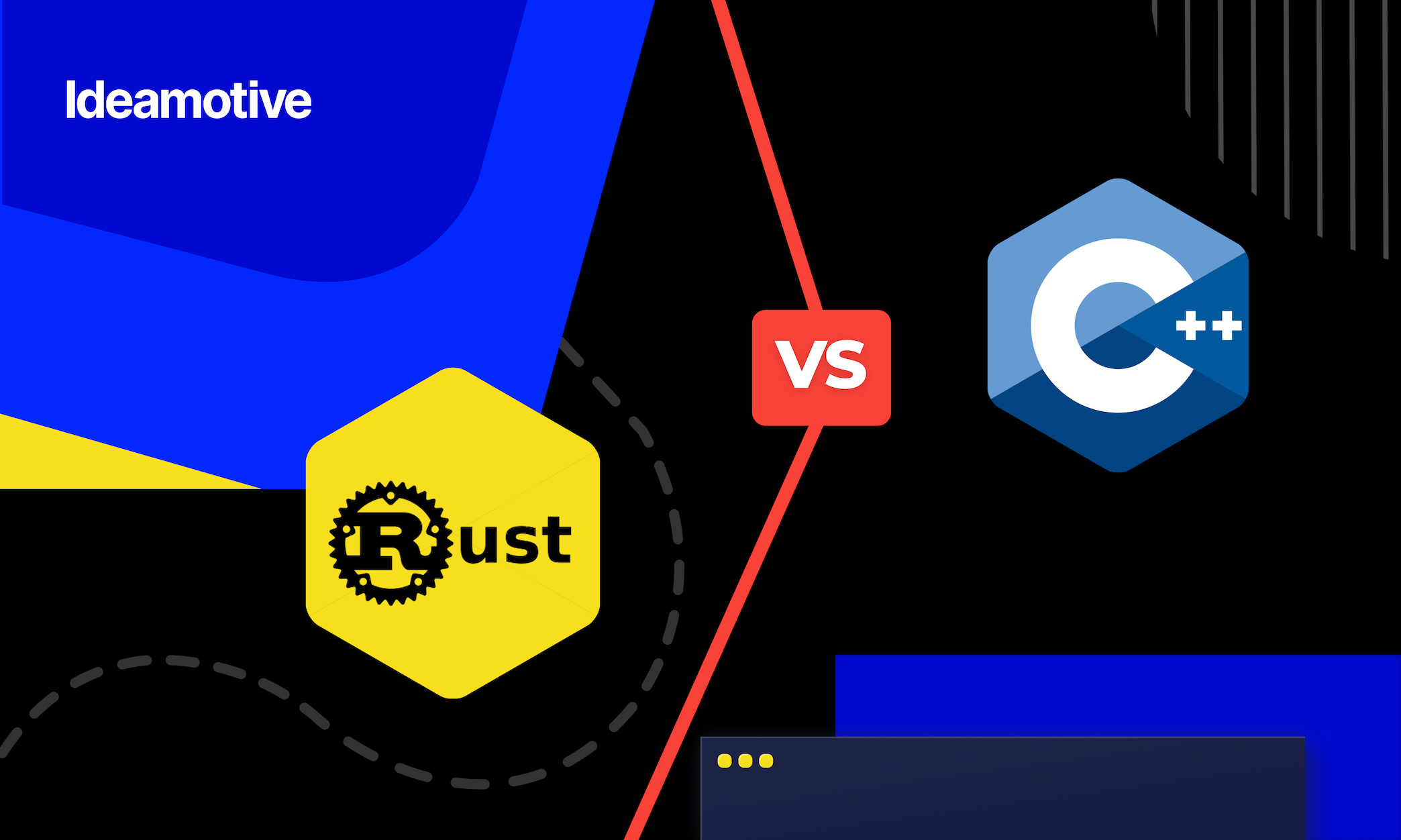Python vs C++: Technology Comparison
Aug 23, 202113 min read

Dawid Karczewski
Senior full stack developer and CTO at Ideamotive.
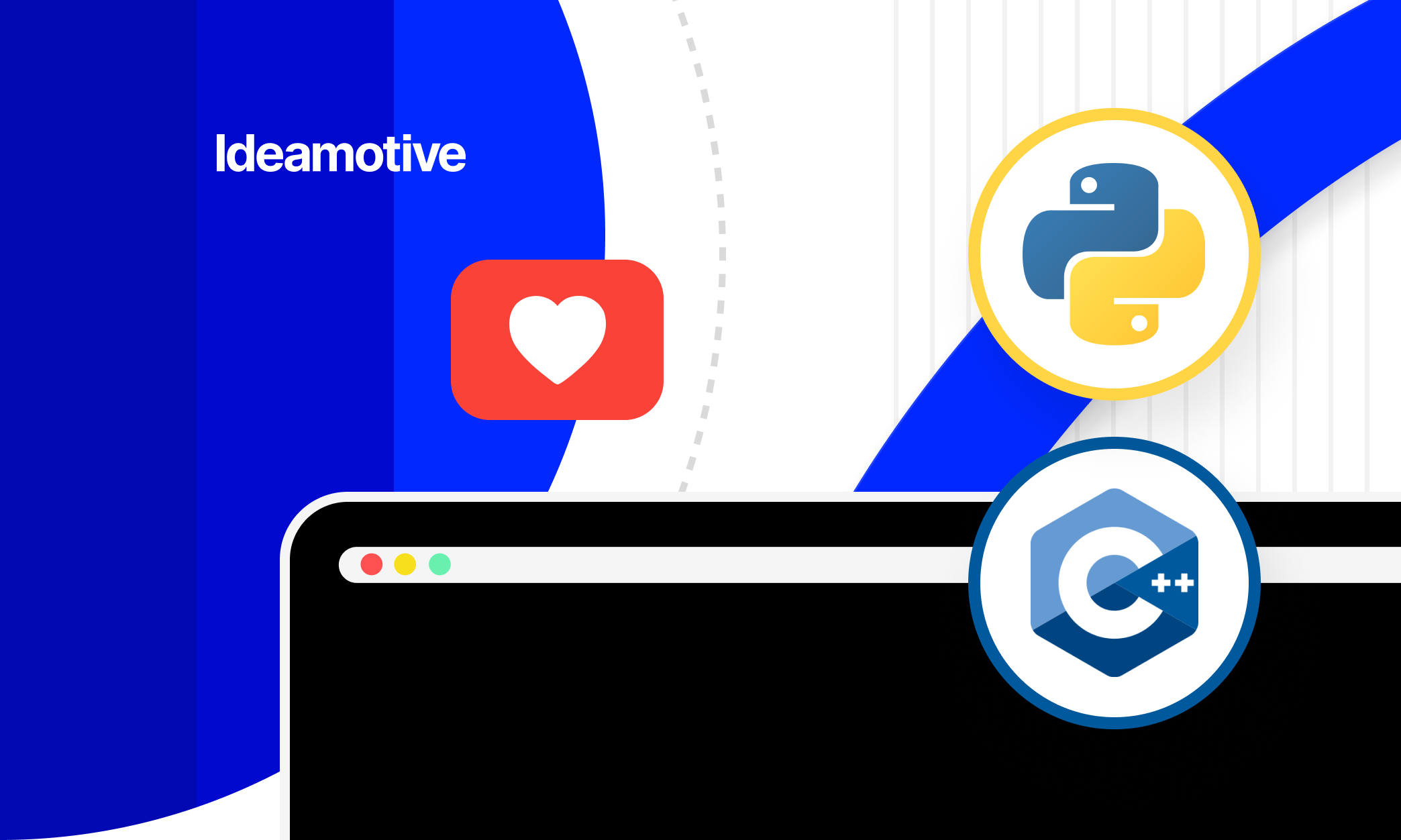
If you find yourself as a business owner contemplating the choice between Python and C++, attempting to decipher the nuances of these technologies, or seeking a comparison to concepts you're already familiar with, this article aims to address your questions. Whether you're curious about the strengths and weaknesses of Python and C++, or even imagining a hypothetical battle between them, this article will provide the insights you need to make an informed decision.
In this article, you will learn about:
- Differences and similarities when comparing Python and C++
- Times when Python may be the best choice for solving a problem, and vice versa
- Main pros and cons of both technologies
This blogpost is for people seeking the right solution for their business. It assumes basic knowledge of both languages and will use concepts from Python 3.6 and newer and C++ 11 or newer.
Let's take a look at Python vs C++!
What is Python?
Python, created back in 1991 by Guido van Rossum, is a general-purpose programming language whose main function is to make it easy to read. From the very beginning, Python was designed to be as easy to use as possible. In fact, simplicity is what it is known for - Python uses a lot of whitespaces, so the code remains easy to read, which makes coding fun and easy.
Because of its simplicity, Python is often the subject of controversy. You might be thinking - why would it be? Is simplicity bad? While simplicity is an advantage for beginners, experienced programmers have a different opinion (this is an important point when comparing Python vs C++).
Python is a high-level programming language. This means that a small amount of actual coding is involved - instead, most of the Python syntax is written in a manner similar to regular, everyday English. Again, this is good news for anyone learning programming from scratch. At the same time, seasoned programmers say that it kills the whole spirit of programming. If a newcomer chooses the "easy path," they say, they will miss out on the overvalued problem-solving, rational thinking skills and will not learn the foundations on which the entire industry is built.
While the question of Python or C++ remains open, the Python language has an important feature. It is suitable for any project - this language is very versatile. Desktop, web development, data processing - whatever you want!
This was all the information about the Python language that will come in handy when getting to know what Python is. Now let's go ahead and talk about the C++ language.
What is C++?
Like Python, C++ is a general-purpose programming language that is used for everyday tasks and is very adaptable. The last feature is very important (both languages have this spec). This means that the programming language is more or less object-oriented and, therefore, able to run faster and more efficiently.
The C++ language was created by a scientist named Bjarne Stroustrup back in 1979. Although it was originally called "C with Classes," the name was changed to "C++" with the addition of several functions in 1983. Keep in mind that this is a super short version of how C++ came to be - there is a whole lot of backstory behind it, but that's not our goal.
C++ is the opposite of Python if we speak in terms of simplicity. In fact, it is considered one of the most difficult (if not the most difficult) programming languages. Its super-complex syntax allows C++ to be extremely flexible - this is the main reason why it is often chosen for working with projects that are developed for several different platforms at the same time.
We've already mentioned at the beginning of the comparison that C++ (just like Python) is also an object-oriented programming language. This makes the language fast and efficient.
Simply put, these languages have certain specific features that allow them to understand the context behind a task without deep analysis of the details. This, in turn, greatly speeds up the processes performed using these languages. Most modern high-level programming languages are object-oriented.
So, now that we know a little about these programming languages, we can move on to the comparison of Python vs C++ and parse them according to certain criteria.
Why should we compare them?
The primary reason for this article is to find out which technology would better suit your project. Indeed, there are millions of reasons to love Python (especially for data scientists). But how does Python differ from more professional low-level programming languages such as C++? We think this is a question that many data scientists or Python users are asking themselves. There are many differences between Python and languages like C++.
Therefore, we want to figure out this point once and forever.
See also: Python vs PHP: Which Technology Will Dominate The Future Of Web Development?
Analysis criteria
When we start comparing programming languages, we don't want to lose sight of any aspect. To save time and not drag out Python or C++ comparisons any longer than necessary, we will mention a few of the most common criteria.
In this article, we will look at the most important ones from a business perspective. Let's consider each of these points separately.
Find more info: Go vs Python - How To Choose the Right Technology For Your Product?
Speed of coding/easiness of coding
Python makes it possible to write simple and straightforward code. This allows you to develop complex machine learning applications without worrying about the specifics of the syntax.
It is relatively fast to code with Python. However, this cannot be said about C++. It is a low-level language that suits computers more than humans.
Python has an advantage in this regard, especially when it comes to comparing C++ vs Python machine learning applications.
By and large, one of the main advantages of Python is its simple and straightforward syntax. C++ programmers will understand it almost immediately, even if the parentheses and semicolons may initially be missing.
Winner: Python
Performance
C++ is a statically typed language, so fewer errors occur when working with a program. This code is faster. This makes C++ a high-performance language. The Python vs C++ performance benchmark tells us the same thing.
Python is dynamic, so it gets more error-prone, and overall performance is lower compared to C++.
Speed
As for the C++ vs Python speed, this is the most talked-about question on the forums regarding the comparison of the two languages. And this is not without reason! A good programming language must be fast, or it will be inefficient and unable to compete with other faster languages. In fact, there is nothing else to add to this - these two programming languages in question interact quite quickly, and there is no difference in their speed.
At first glance, after searching the web, it seems that C++ is faster. C++ is considered to be faster to execute, mainly because its competitor, Python, is written in C. However, C++ is often regarded as the fastest programming language.
C++ programs run faster. That is why this language is used in areas where speed matters, for example, in games.
While looking for decent evidence, we found an interesting comparison made by Niklas Heer. He posted his test results on GitHub, where he showed how each of the languages handles floating-point operations. The results showed that C++ takes 9.5ms, while Python 3 (pypy) takes 41ms, and Python 3 (CPython) takes up to 243.5ms.
This test proves how much faster C++ actually is. The following reasons for this outcome can be named:
- Good C++ code runs faster on the CPU than Python
- No interpretation step where each expression is evaluated line by line
- No constantly running garbage collector
- There is more control over system calls
- You can easily write machine code
This all affects the higher performance of C++ code. Here's what affects Python's lower performance:
- The language is interpreted, not compiled
- There are no primitives in Python. Everything is represented as objects of built-in types
- Lists contain objects of different types. This requires extra space to define future items in the list.
Python is slower. Its code runs even slower than Java applications.
Efficiency
As for the other performance criteria, C++ code is harder to maintain, as it only gets harder as applications grow in size.
On the other hand, Python has cleaner code and easier syntax. It is much easier to maintain.
Winner: C++
Stability
In fact, they should all be stable. If you want to play it safe, then C++ is a good choice as it has been around for several years.
The biggest problem in terms of unstable code is the presence of a loose nut behind the keyboard.
C++ is probably the most stable in the sense that parts of the standard library in use today are not going anywhere. However, this may depend on what your program is using and how you run it. If you want to distribute your program to others, this is one thing; If you write a C++ program for win32api and laptops are replaced by smartphones, will your code still be useful? When programs run on the machine you manage (physical machine, Amazon image), the version of Python you installed will never stop working.
Winner: C++
Popularity
While this may seem trivial at first glance, it is actually really important for our comparison. Now we will clarify.
Popularity means the programming language does everything right. After all, if a programming language is useless, then no one would use it, right?
Moreover, resorting to a popular and demanded programming language is easier and more enjoyable than one that no one uses and for which there is no demand. The development of certain languages is associated with several factors - Internet resources and communities. With unpopular languages, it is not just difficult to find a person who could share information; sometimes, such information cannot be found on the Internet at all.
While this is a tricky criterion to judge, it is clear that Python and C++ have many fans on the Internet. Since numbers are deciding now, we can confidently say that everything depends on the group of people we are talking about - beginner programmers usually start with Python, while those who already have experience take an interest in C++.
Turning to Google Trends, we can see that over the last years, Python has gained more fans than C++.
The popularity of both of these languages has a lot to do with their complexity. Since Python is considered a very simple language for beginners, it is also very popular.
On the other hand, while C++ is definitely more complex, there are many projects that need it.
The 2020 Stack Overflow Developer Report includes a survey of the most popular languages among developers. Below you can see the results. As you can see, Python is definitely ranked higher than C++, which makes a lot of sense since it is so easy to program. However, C++ still got 23.9% of the vote, which is a lot considering how difficult it is.
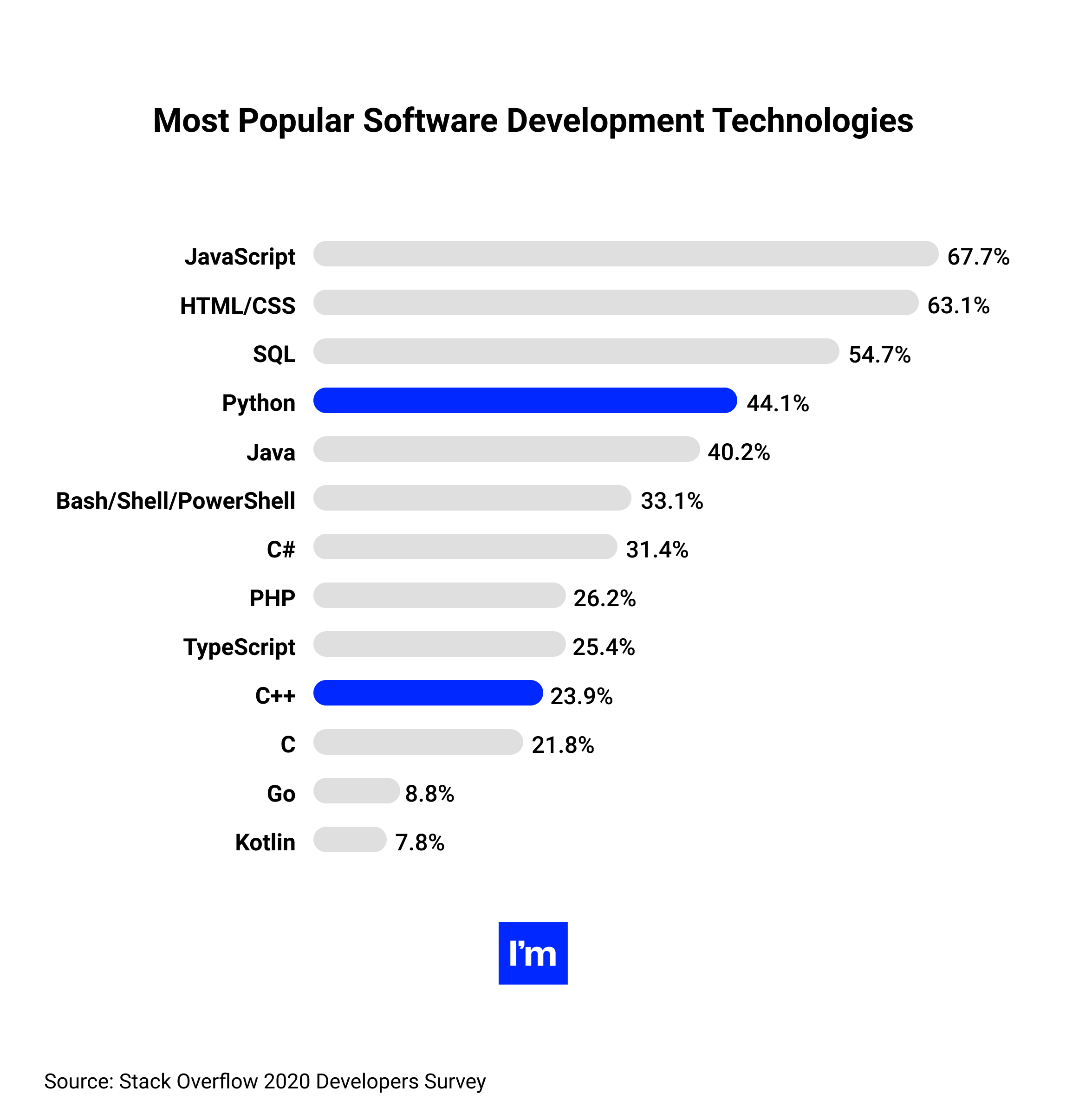
Winner: Python
Community
Both languages enjoy great support from their communities. However, there is a big difference in the types of people you can find there.
Because C++ is used for many complex projects, the community consists of many experienced developers. This helps in finding different solutions. However, since C++ is compiled, it is not as easy as getting the source code.
Python, on the other hand, enjoys a lot of support from the university community. Many scientists use it in their work and in their dissertations. Also, as long as Python is an interpreted language, some modules can simply be added to the project by copying it from Github.
Draw
Talent pool
Unsurprisingly, the more popular the technology is, the more talents you can find on the web. The same formula can be applied in the case of Python vs C++ comparison. The first one is way more widespread. Hence, it will be much easier for you to find Python devs.
To be more precise, in 2015, there were 4.4 million C++ software developers (source). Now their number has increased slightly and amounted to 5.4 million (source).
As for the talents who chose Python, according to SlashData, there were 7 million Python developers in 2018.
Winner: Python
Easiness to learn
Python is an easy-to-learn language, whereas C++ is difficult to learn as it has many predefined syntaxes and structures.
Python is closer to plain English. Hence, it is easy to learn the language. C++ is the opposite of Python in terms of a learning curve. In fact, it is considered one of the most difficult to master (if not the most difficult) programming languages.
Winner: Python
Security
Honestly, C++ has much more serious security flaws than Python.
As per Beat The Heat: Security Flaw Heat Map, for C++, error handling is a major problem found in 66.5% of these applications. Veracode found that 59% of applications written in C++ were seriously flawed.
Python would be much more useful for security programming.
Winner: Python
Cost of development
To be honest, this point is the most obvious to everyone. So, let's see the wages of related devs.
Programming is indeed a very lucrative profession. However, experts in different programming languages also earn differently. There are many reasons for this: some companies have specific requirements for language proficiency specialists, others do not have specific requirements. Be that as it may, the fact remains that not all languages have the same salary.
According to Glassdoor.com, Python developers can expect to receive an average of $95,000 per year, which is roughly $8,000 per month. C++ developers are expected to make about $90,000 per year or nearly $7,500 per month. What do these salaries tell us?
The difference is very low, which is quite surprising. This is strange because C++ is considered a very difficult programming language to learn, while Python strives for simplicity. In all fairness, this small difference in salary may be just one of the main reasons why more and more people are choosing to learn Python.
Still, these figures aren't the only ones you should pay attention to. The whole developing process takes the time and efforts of various specialists - from project managers to HRs. Therefore, another wise step would be to turn to expert software consultants. In doing so, you will be aware of all the upcoming costs.
Draw
Documentation
The Python documentation is divided into two parts: one is a basic tutorial that won't cover anything other than what you can find in the books, and for the most part, it is a reference to the language itself. It's not a great learning resource, but it's (like the good documentation) a great reference for when you want to know what a particular module does.
The documentation does not answer questions like "How do I download a file from the Internet?" (it actually answers this specific question, but the idea is that this is not a learning resource), but it will tell you what all the methods of the urllib module are. However, you already need to know that you need urllib to get the job done; this is the main problem when you are just starting out.
As for the C++ documentation, users tend to call it a "bad" one. According to some sources, it is not as efficient as we have in the Python case. Moreover, it is very hard to read.
Winner: Python
Summary table
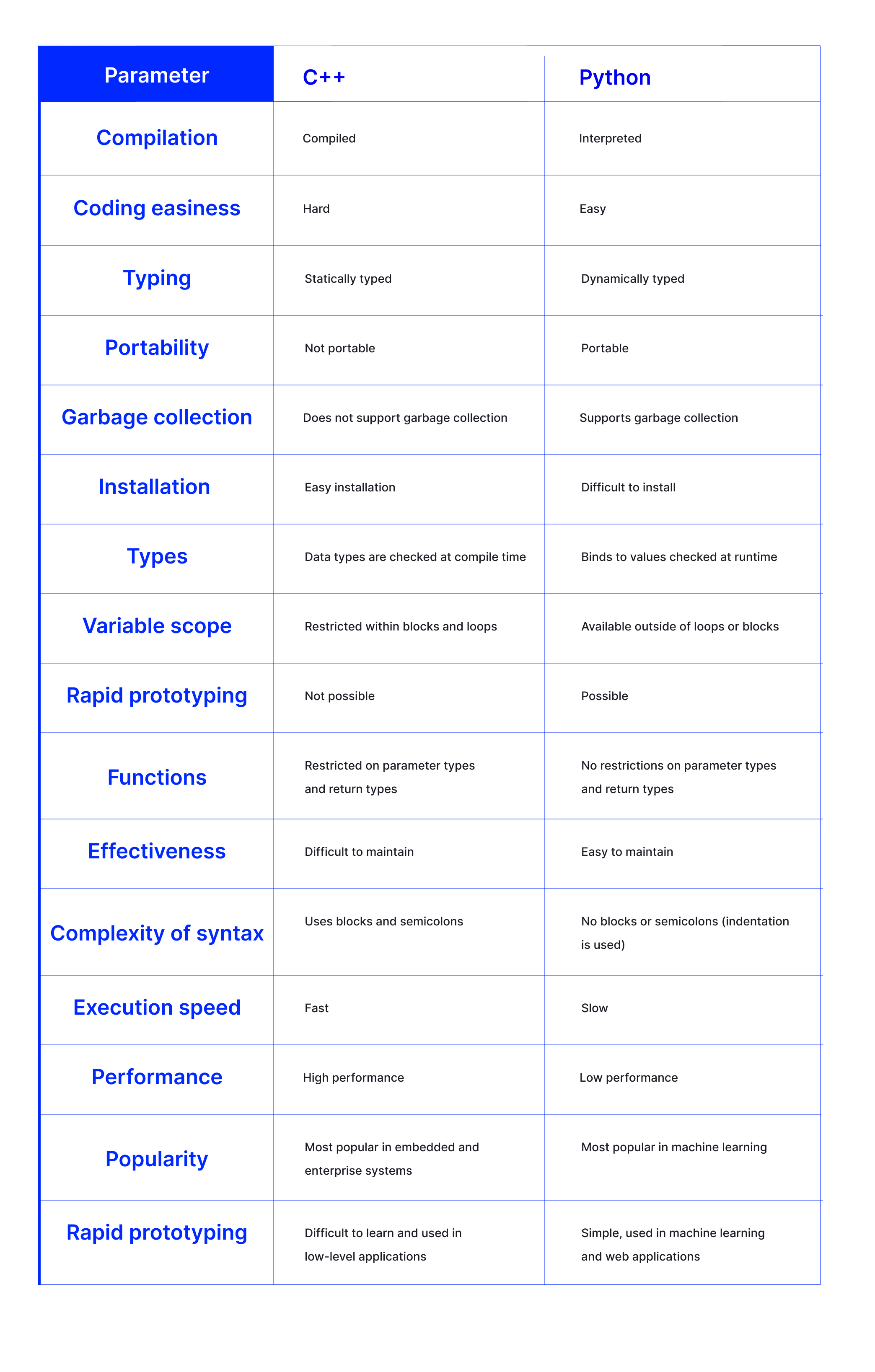
Pros and cons
Python pros
- Very simple syntax compared to C++.
- It is used for machine learning, deep learning, and the general overarching field of artificial intelligence.
- Very useful when analyzing and visualizing data.
- Extensive library and handy tools for developers/programmers.
- Python is cross-compatible.
- Python has an auto-installable wrapper.
- Compared to code in other languages, Python code is easy to write and debug. Hence, its source code is relatively easy to maintain.
- Python is a portable language, so it can run on a wide variety of operating systems and platforms.
- Python comes with many pre-built libraries to make your development task easier.
- Python helps simplify complex programming. Since it internally deals with memory addresses, garbage collection.
- Python provides an interactive shell that helps you test things before actually implementing them.
- Python offers database interfaces for all major commercial DBMSs.
- Supports imperative and functional programming.
- Python is known for its use in the IoT.
Python cons
- Used on fewer platforms.
- Weak in mobile computing, therefore not used in app development.
- Since Python is dynamic, it shows more runtime errors.
- Underdeveloped and primitive level of database access.
- Lack of commercial support.
C++ pros
- The main advantage of C++ is performance. Its performance is much higher compared to Python.
- C++ is suitable for almost all platforms as well as embedded systems, while Python only works on select platforms that support high-level languages.
- C++ is more predictable thanks to static typing. This also affects performance.
- When working with C++, you can learn low-level programming because the language is close to the hardware. In the case of Python, this will not work.
C++ cons
- It does not provide security for your code.
- A complex language to use in a very large high-level program.
- It is commonly used for platform-dependent applications.
- When C++ is used for web applications, it is difficult to debug.
- C++ does not support garbage collection.
- No native support for streams.
- C++ is not as portable as other high-level programming languages. So, when you want to compile your C++ code, you need to run it on another computer.
- If the same operation must be performed more than once, the same sequence must be copied in some places, which increases the redundancy of the code.
When to use & examples
What is Python good for?
When it comes to Python, it is widely popular in MVP development or proof of concept. It's also really good for small applications.
Another thing that Python is great for is data analysis, which makes it really popular among university communities.
Most artificial intelligence frameworks are also written in Python.
If your main concern is quick and easy development and your application is fairly easy to write, choose Python.
Use cases:
Web Application Development
Python has several web development frameworks such as Django and Flask that empower rapid application development. Django's dynamic development abilities have made Python a valuable tool for web applications. The framework comes with standard libraries, which decreases development time. Also, it provides a longer time to market for your web application.
Data science
Matplotlib and Seaborn are both used for data visualization.
Artificial Intelligence
Python has an extended collection of libraries for machine learning apps. These include SciPy, Pandas, Keras, TensorFlow, NumPy, and many more.
The use of Python in AI solutions includes advanced computing, data analytics, image recognition, text and data processing, and more, from which businesses can profit.
Game development
Some of the real-life Python projects in the gaming industry include Battlefield 2, Frets on Fire, World of Tanks, etc. These games use Python libraries like PySoy and PyGame for development.
Python allows game developers to create tree-like algorithms that are useful in developing various levels in a game. Games require multiple requests to be processed at the same time, and Python is very good at that.
Developing gaming applications in Python is one of the top 10 real-world uses of Python. It offers developers the ability to install a 3D game engine that helps them create powerful games and interfaces.
Internet of things
Another real use of Python is in the Internet of Things. The Python programming language allows developers to turn any object into an electronic gadget using the Raspberry Pi.
Python is used to build embedded software to enable high-performance Python applications in smaller objects that can work with the programming language.
With the Raspberry Pi, developers can perform high-level computation using Python applications. By embedding it, developers can turn ordinary objects into smart electronics.
What is C++ good for?
C++ is often used to write operating systems, controllers, or specialized applications for various hardware platforms. Because C++ allows an application to run very fast and manage memory usage, it is used in most embedded systems.
Moreover, if there is a need to optimize the system, C++ is great for this. Its ability to really interact with the processor helps the application minimize its usage.
Use cases:
Games
C++ is close to the hardware, can manipulate resources easily, provides procedural programming over CPU-intensive functions, and is fast. It can also overcome the complexities of 3D games and provide multi-layered networking. All these advantages of C++ make it the primary choice for developing game systems as well as game development kits.
GUI based applications
Here are some examples of GUI applications written in C++:
- Adobe Systems. Most applications of Adobe Systems, including Illustrator, Photoshop, etc., are developed using C++.
- Win Amp Media Player. Win amp media player from Nullsoft is popular software that has been satisfying all our audio/video needs for decades. This software is developed in C++.
Database software
C++ is also used when writing database management software. The two most popular databases MySQL and Postgres, are written in C++.
- MySQL Server. MySQL, one of the most popular database programs that is widely used in many real-world applications, is written in C++.
- Postgres. It is the world's most popular open-source database. This database is written in C++ and is used by most organizations.
Operating systems
- Apple OS. Parts of Apple OS X are written in C++. Likewise, some parts of the iPod are also written in C++.
- Microsoft Windows OS. Most of Microsoft's software is developed using C++ (a variation of Visual C++). Applications such as Windows 7, 10, etc. are written in C++. In addition, Visual Studio IDE, Microsoft Edge, Microsoft Office are written in C++.
Browsers
Browsers are mostly used in C++ for rendering. The rendering engines should be faster to execute, as most people don't like to wait for a web page to load. Due to the high performance of C++, most browsers have rendering software written in C++.
- Mozilla Firefox. The Mozilla Firefox Internet browser is an open-source project developed partially in C++.
- Thunderbird. Like Firefox, Mozilla's email client, Thunderbird is also developed in C++. It is also an open-source project.
- Google Apps. Google applications such as the Google file system and the Chrome browser are written in C++.
Conclusion
So we come to the end of our Python vs C++ comparison. Did you manage to choose between two? Or are you still doubting? If so, why not consult your product with us? We can provide you with technical consultancy and supply your team with experts skilled in both C++ and Python technologies, matched with your product and your industry.
To be honest, both languages have their pros and cons. If we compare two programming languages, it all comes down to what your preferences are.
In any case, be sure to supplement your project with decent talents or delegate this task to Ideamotive. We can offer you a well-experienced dedicated team of talents which will include specialists from PMs and designers to web and full-stack developers.

Dawid is a full stack developer experienced in creating Ruby on Rails and React Native apps from naught to implementation. Technological superhero, delivering amazing solutions for our clients and helping them grow.
View all author postsTrending articles
21 Dazzling Examples of Mobile App UI Design to Inspire You in 2023
Michał Pruciak 7 min read
MedTech vs HealthTech vs BioTech: What Are The Differences?
Michał Pruciak 7 min read
10 Business Applications of Neural Network (With Examples!)
Michał Pruciak 4 min read
10 Irresistible Examples of Web Design Best Practices for 2023
Adam Kozłowski 7 min read
21 Amazing Examples Of React Web Development
Michał Pruciak 14 min read

Read more featured publications and articles
Looking for a specific type of software development service?
Rated 4.8 / 5.0 by clients from various industries and locations.
.png?width=1584&name=Python_%20The%20Definitive%20Business%20Guide%20-%20blog%20banner%201584x396%20(1).png)
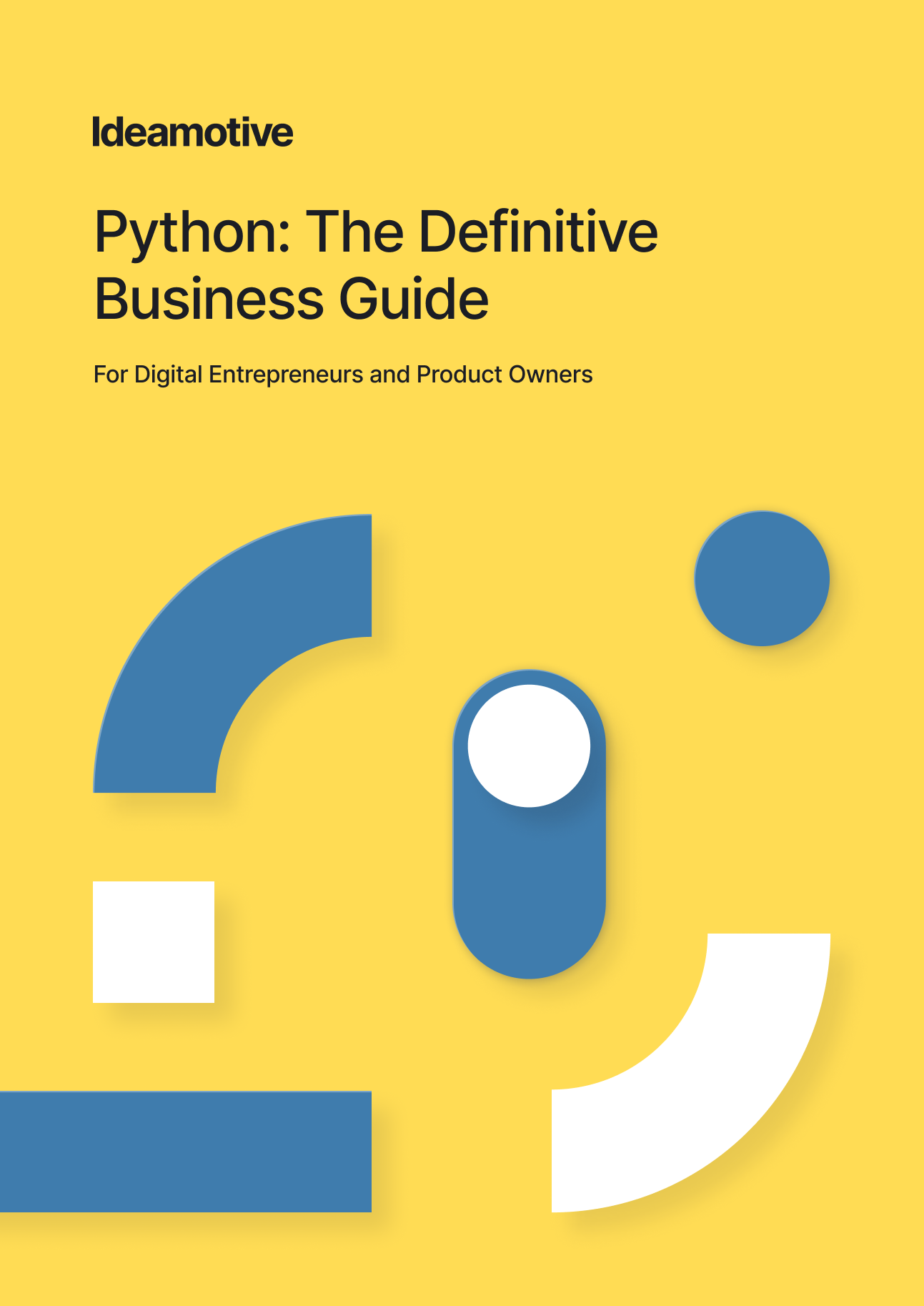
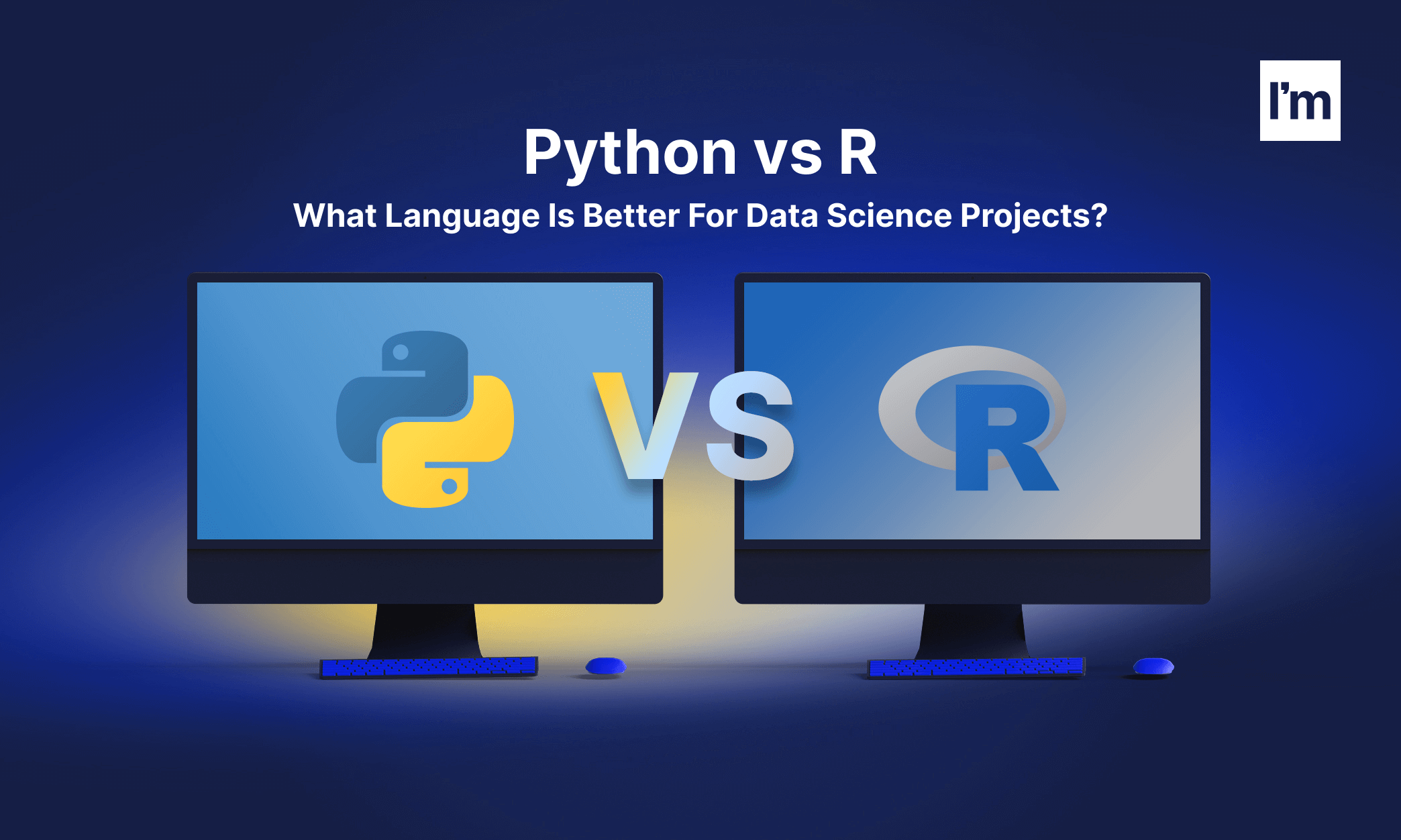

-1.png)
